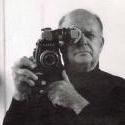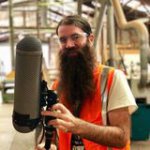
HockeyFan12
-
Posts
887 -
Joined
-
Last visited
Reputation Activity
-
 HockeyFan12 got a reaction from Chris Oh in 18-135mm Nano USM and PZ-E1 question
HockeyFan12 got a reaction from Chris Oh in 18-135mm Nano USM and PZ-E1 question
I have no self-control lol. Especially after two beers.
I'll let you know what I think. Neither my C100 nor SL1 have a hint of decent autofocus but I can put them through their paces.
-
 HockeyFan12 got a reaction from BTM_Pix in 18-135mm Nano USM and PZ-E1 question
HockeyFan12 got a reaction from BTM_Pix in 18-135mm Nano USM and PZ-E1 question
Guess what I just bought.
Yes, both the lens and zoom rocker.
If nothing else I have a new travel lens for stills.
-
 HockeyFan12 got a reaction from TheRenaissanceMan in Canon C200 vs Panasonic GH5, a preview
HockeyFan12 got a reaction from TheRenaissanceMan in Canon C200 vs Panasonic GH5, a preview
In what role? Just curious. Camera department? If so I have a few questions.
From what I've seen this is 100% true. Different flavors of raw are different flavors of pain so I try not to generalize that every raw workflow is a nightmare. But I would prefer 10 bit log prores over any other format as well.
-
 HockeyFan12 got a reaction from BTM_Pix in 18-135mm Nano USM and PZ-E1 question
HockeyFan12 got a reaction from BTM_Pix in 18-135mm Nano USM and PZ-E1 question
Ooh yeah that is bad. Not as bad as I get by doing a crash zoom with a similar lens but really ugly.
You can see someone using it on a C100 mk II here but the aperture racks when he zooms. That said.... no flicker.
I wasn't considering this but given the cheap gray market availability of the lens and second hand market (since it's a kit lens for so many cameras) I might have to sell the old hvx and pick one up.
18-135mm is also the most useful range for video IMO and outdoors I don't need anything faster than f5.6 whereas my prime kit is really heavy.
-
 HockeyFan12 got a reaction from Timotheus in I'm almost done with two films... Advice?
HockeyFan12 got a reaction from Timotheus in I'm almost done with two films... Advice?
Vimeo and YouTube have grown in visibility in the industry from what I’ve seen, even beyond festivals. But festivals let you pick and choose to whom you’re showing your content. YouTube doesn't.
I've recognized that I don't have the talent (or maybe just the desire) to succeed at either. But I think what works well in the long run is submitting your work to venues that exhibit work you love. I have friends who've won big at Sundance but done nothing since, because they broke through with something really innovative and great. So great that it got into a festival despite being better and more groundbreaking than that festivals boring, staid, limited "brand." (Heck, I almost did this myself.) But then when they were signed to CAA, WME, UTA, etc. they had to abide by the confines of that agency's demands.
They couldn't. They were artists.
It's why they got into Sundance in the first place. It's also why they struggled so much after.
So fuck 'em. If your work is great it's great. Show it to your friends. If your friends love video game commentators and you're a video game commentator, awesome, now your friends are most of YouTube. If they're quirky but still kinda safe, awesome, Sundance and Slamdance. If neither, cool, you're an innovator. That's way cooler than I can claim to be.
But here's the big question: where do you consume most of the media you consume? Okay. Now submit there. In the short run it might be harder. Long run, more rewarding and a better fit. You think venues you don't like are better fits, because you see the flaws in their content and know that duh you can do way better than that. But what you fail to see are the merits that those venues' viewers see. (Granted, those merits could be stupid. But no one wants to know that they're stupid, either.)
If you want to thrive on YouTube or Vimeo or any given festival, study its output and emulate it. If you want to just be you, just be you. I've been through it all. I'm old lol. I finally see that everyone is as insecure and unsure as you are. Festival programmers are the most insecure. Their only output is what films they choose from other people's work. They aren't even making their own work and yet they are the gatekeepers and kingmakers. They're insecure in their opinion. The audience is insecure in its opinion. The social aspects far outweigh the merit. It's like someone posting on Facebook that they like the Smashing Pumpkins vs. Billy Corgan. Billy Corgan seems way more insecure... but why? He's the innovator?
The artist is in a difficult situation. Cooler when they're cool. But open to way more criticism. And generally more sensitive to it, too.
So what can you do? You can choose to ignore it.
Not let it get to you.
And do your own thing.
You're an artist.
You're above YouTube.
You're above festival programmers
Their brand is what they like. They cannot create it.
Your brand is what you make. You create it constantly.
They're the slaves. You're the god.
Stay the course. Stay confident. Fuck the rest. Michael Bay cowers before critics even if he gets great BO. Lars von Trier cowers before financiers even if his critics love him. You are only asking for bigger problems with more success. Know that. And know you're an artist. You're above them. You're the creator. You're the god. Forget it and you're toast.
Act accordingly. Success just means your audience owns you. ("Your possessions possess you" - Fight Club. "If you owe the bank $10 million dollars, they own you. If you owe the bank $10 trillion dollars, you own them" - Someone way smarter than me.)
Own you.
Own your audience.
Never let your audience own you.
You don't need their approval. If they showed you their short films you'd just laugh at the pathetic attempts.
Stay confident. Stay the course. You are their god. And so what if they get cranky, crucial, and indignant? They can always watch Pewdiepie instead. (And fwiw, I think he's pretty talented, other than the horrific antisemitism.)
-
 HockeyFan12 got a reaction from Liam in I'm almost done with two films... Advice?
HockeyFan12 got a reaction from Liam in I'm almost done with two films... Advice?
Meeting collaborators is a great first step and the most important thing to do. It's advice I should have taken (when I was your age or thereabouts). I think I probably would have done better skipping college and just jumping right into the industry. But I have friends who went that route and it worked great at first, they were on studio sets around 19 or 20 in key roles, but socially they weren't ready for the pressure and shittiness of the industry. So.... yeah.
If you see something you love, reach out to whomever made it. Show interest. That kind of networking is as important on the festival scene as the film itself is in terms of long-term prospects. Maybe you can work on that person's crew some day and when their film gets into Sundance, it will be a leg up for you (though this has not turned out to be the case for me, probably because I'm not the biggest fan of Sundance films in the first place).
I know lots of people who jumped at the opportunity for "success" only to burn out from working on the wrong content and not following their passion in their day job. They were successful, but at the wrong thing, so it's a step forward but also a step back. Nothing wrong with day jobs, but compartmentalize and be true to yourself. You'll do better working with those whose work inspires you and their opinions of it will be far more meaningful than the unwashed masses'.
I'm told the best thing a festival director can do is attend festivals. Or a Vimeo director's best bet is to watch a lot of Vimeo. I'm not a fan of either, really. :/ But I'm taking my own advice and making a video (calling it a short would be generous) to show a couple Sundace directors who actually did make a feature I liked and who are conveniently friends of a number of my friends since I would like to work on their crew. Hoping my own advice works lol. Luckily I'm working with a lot of people whose work I like currently, but more thorough serendipity than through making a big effort in the first place, which I should have done! It can also be great professionally to network with people whose work you like. Even if you "only" end up on the crew of the next big director and even if it takes five years for that to all play out, that's still gonna be a professional and financial windfall by the time it matters and you're ready for that level of success.
-
 HockeyFan12 got a reaction from Liam in I'm almost done with two films... Advice?
HockeyFan12 got a reaction from Liam in I'm almost done with two films... Advice?
Vimeo and YouTube have grown in visibility in the industry from what I’ve seen, even beyond festivals. But festivals let you pick and choose to whom you’re showing your content. YouTube doesn't.
I've recognized that I don't have the talent (or maybe just the desire) to succeed at either. But I think what works well in the long run is submitting your work to venues that exhibit work you love. I have friends who've won big at Sundance but done nothing since, because they broke through with something really innovative and great. So great that it got into a festival despite being better and more groundbreaking than that festivals boring, staid, limited "brand." (Heck, I almost did this myself.) But then when they were signed to CAA, WME, UTA, etc. they had to abide by the confines of that agency's demands.
They couldn't. They were artists.
It's why they got into Sundance in the first place. It's also why they struggled so much after.
So fuck 'em. If your work is great it's great. Show it to your friends. If your friends love video game commentators and you're a video game commentator, awesome, now your friends are most of YouTube. If they're quirky but still kinda safe, awesome, Sundance and Slamdance. If neither, cool, you're an innovator. That's way cooler than I can claim to be.
But here's the big question: where do you consume most of the media you consume? Okay. Now submit there. In the short run it might be harder. Long run, more rewarding and a better fit. You think venues you don't like are better fits, because you see the flaws in their content and know that duh you can do way better than that. But what you fail to see are the merits that those venues' viewers see. (Granted, those merits could be stupid. But no one wants to know that they're stupid, either.)
If you want to thrive on YouTube or Vimeo or any given festival, study its output and emulate it. If you want to just be you, just be you. I've been through it all. I'm old lol. I finally see that everyone is as insecure and unsure as you are. Festival programmers are the most insecure. Their only output is what films they choose from other people's work. They aren't even making their own work and yet they are the gatekeepers and kingmakers. They're insecure in their opinion. The audience is insecure in its opinion. The social aspects far outweigh the merit. It's like someone posting on Facebook that they like the Smashing Pumpkins vs. Billy Corgan. Billy Corgan seems way more insecure... but why? He's the innovator?
The artist is in a difficult situation. Cooler when they're cool. But open to way more criticism. And generally more sensitive to it, too.
So what can you do? You can choose to ignore it.
Not let it get to you.
And do your own thing.
You're an artist.
You're above YouTube.
You're above festival programmers
Their brand is what they like. They cannot create it.
Your brand is what you make. You create it constantly.
They're the slaves. You're the god.
Stay the course. Stay confident. Fuck the rest. Michael Bay cowers before critics even if he gets great BO. Lars von Trier cowers before financiers even if his critics love him. You are only asking for bigger problems with more success. Know that. And know you're an artist. You're above them. You're the creator. You're the god. Forget it and you're toast.
Act accordingly. Success just means your audience owns you. ("Your possessions possess you" - Fight Club. "If you owe the bank $10 million dollars, they own you. If you owe the bank $10 trillion dollars, you own them" - Someone way smarter than me.)
Own you.
Own your audience.
Never let your audience own you.
You don't need their approval. If they showed you their short films you'd just laugh at the pathetic attempts.
Stay confident. Stay the course. You are their god. And so what if they get cranky, crucial, and indignant? They can always watch Pewdiepie instead. (And fwiw, I think he's pretty talented, other than the horrific antisemitism.)
-
 HockeyFan12 got a reaction from Timotheus in specialize in one area or...
HockeyFan12 got a reaction from Timotheus in specialize in one area or...
If you only suck at half of it you're way ahead of most of us.
I think the advice that you should specialize is mostly given as career advice. It makes sense. If you spend half the time doing something, you won't get as good as if you spent all your time doing that one thing. And it's difficult to market yourself as someone who does two things okay instead of one thing well. (This isn't as true in smaller markets. Outside LA, London, NYC, Vancouver, etc. generalists or people who run their own one-man companies can thrive. It's harder in a big market.) If you're not that worried about supporting yourself in a big market, just do whatever you want! If you're excellent at one technical, often tedious thing and good at networking (say, you learn Avid or Nuke relatively well, which can be done in six months, or you learn to pull focus and join the union) you can make six figures right off the bat, or close to it. And then from there you can support yourself in a big city (well, barely), learn from others, and see and observe how it's done. Then you can either learn more about what you're doing or observe what other people in entirely different departments are doing. David Fincher took this route, not because he wanted to do it all himself, but because he wanted to be able to so he knew no one was slacking on set. Or you can take that same route but find other people to bring onto your projects instead of learning from them! Once you get signed to a major agency like CAA or get a creative director job at a big company (which can take five years or more, admittedly) or get signed to a production company as an advertising director, then your agent or company will put together packages of talent for you when you direct. I worked on a project with a first-time director who had no technical skill, but he did a really good job writing and directing because of the team they put together and that he collaborated with. Another friend of mine was signed to one of CAA's top agents right out of school and he didn't know what an f stop was. Maybe he did, he just didn't care. He was a storyteller with a great crew. Another friend had a similar experience, signed to a major company right out of high school. Again, not technical, but visionary.
A LOT of festival winners and Vimeo sensations secretly have major agencies and production companies (think CAA, WME, the Mill, etc.) doing the dirty work. They say if you wear every hat you get judged by the one that first you worst. But if you wear them all well (or even half of them), more power to you. Maybe you will have to pick up the slack for someone some day, maybe it will help you run the set faster. That knowledge will help out every step of the way. But you DEFINITELY don't need it. At all. And the fear that you do can hold you back.
If money is not your main consideration, and if you're not struggling to pay the bills in a big city (which can kill your success; it's not always a good idea) just follow your bliss. I think Robert Rodriguez and Steven Soderbergh would do every job on set if they could because they come from a technical and formal background. But a lot of people are simply very passionate about one thing, and that one thing is why they get hired. Most directors aren't super technical, they just have great taste and people skills and management skills and are good storytellers.
This is even true of film schools. Some of the best (Columbia, for instance) provide less technical education than a day on this forum would. Some of the best (AFI cinematography) provide more technical experience than you can find on the entire internet. By far. It depends what the student wants!
If you can do what you want, do what you want. I wish I had the luxury but I gotta pay rent lol.
-
 HockeyFan12 got a reaction from Ed_David in DIY Film Look
HockeyFan12 got a reaction from Ed_David in DIY Film Look
There is some truth to the first part but I question the second part. How are you shooting and scanning film affordably? 16mm or 35mm? If I can figure out how to I would love to.
-
 HockeyFan12 got a reaction from Ed_David in DIY Film Look
HockeyFan12 got a reaction from Ed_David in DIY Film Look
I worked on a feature that was shot on 35mm with a digital b camera and I shot some b camera stuff too, which was a blast. First and only chance to get to use a Fisher dolly. Same (very very expensive) lenses on both cameras, same lighting we're talking nine lights really old school big light set ups. Anyhow we had to match the two. And they did NOT look the same.
So in post what I did (way before film convert, this is before the Alexa was even announced it was way back when lol) was to make sure they had shot color checker charts. Then in post I lined up the vector scopes side by side and used the hue v hue line to match the colors on the charts. Made some gamma curves by eye. Applied that as a preset and tweaked from there. And then used a film grain effect, too. (Again, this was before film scans were widely available and the film grain we shot for compositing was too slow to apply across a feature.)
Did it work? Not really lol. Tungsten matched but we had an HBO exec at the theatrical screening who called out some shots, probably the daylight ones. They did not feel the same exactly. Skew was one issue (okay, it was a Red One MX lol), blown highlights... a bit less of an issue than you'd expect since everything was lit great and the b cam was picking up close ups with fewer practicals in frame. The crazy part was that the vectors cope on the video was more "diffuse" than the film one, as if the color had way less resolution even at 1080p and the saturation appeared lower even at the same saturation level, which you know you can't push it too high for broadcast, so the Red stuff looked less vivid.
That said, it was quick and dirty work. And it matched REALLY closely for the most part. We used older lenses which were sharp but a bit... smooth. So that helped.
What worked: lighting exactly the same as you would for film, using expensive support gear, $200,000+ lenses, painstaking grading, super imposing film grain. Shooting film as a reference.
What didn't work: Painstaking grading as well as we'd like lol.
For us the key was shooting film as a reference and lighting for film and using the same support gear and lenses you'd use. Without that, it wouldn't have been possible. And even then, we only got so close. But hey, it was a cool project and we got really really close.
That said, it can be done. Check out Yedlin's Nuke script. Breathtaking work there. If only we could get our hands on it!
-
 HockeyFan12 got a reaction from Liam in specialize in one area or...
HockeyFan12 got a reaction from Liam in specialize in one area or...
If you only suck at half of it you're way ahead of most of us.
I think the advice that you should specialize is mostly given as career advice. It makes sense. If you spend half the time doing something, you won't get as good as if you spent all your time doing that one thing. And it's difficult to market yourself as someone who does two things okay instead of one thing well. (This isn't as true in smaller markets. Outside LA, London, NYC, Vancouver, etc. generalists or people who run their own one-man companies can thrive. It's harder in a big market.) If you're not that worried about supporting yourself in a big market, just do whatever you want! If you're excellent at one technical, often tedious thing and good at networking (say, you learn Avid or Nuke relatively well, which can be done in six months, or you learn to pull focus and join the union) you can make six figures right off the bat, or close to it. And then from there you can support yourself in a big city (well, barely), learn from others, and see and observe how it's done. Then you can either learn more about what you're doing or observe what other people in entirely different departments are doing. David Fincher took this route, not because he wanted to do it all himself, but because he wanted to be able to so he knew no one was slacking on set. Or you can take that same route but find other people to bring onto your projects instead of learning from them! Once you get signed to a major agency like CAA or get a creative director job at a big company (which can take five years or more, admittedly) or get signed to a production company as an advertising director, then your agent or company will put together packages of talent for you when you direct. I worked on a project with a first-time director who had no technical skill, but he did a really good job writing and directing because of the team they put together and that he collaborated with. Another friend of mine was signed to one of CAA's top agents right out of school and he didn't know what an f stop was. Maybe he did, he just didn't care. He was a storyteller with a great crew. Another friend had a similar experience, signed to a major company right out of high school. Again, not technical, but visionary.
A LOT of festival winners and Vimeo sensations secretly have major agencies and production companies (think CAA, WME, the Mill, etc.) doing the dirty work. They say if you wear every hat you get judged by the one that first you worst. But if you wear them all well (or even half of them), more power to you. Maybe you will have to pick up the slack for someone some day, maybe it will help you run the set faster. That knowledge will help out every step of the way. But you DEFINITELY don't need it. At all. And the fear that you do can hold you back.
If money is not your main consideration, and if you're not struggling to pay the bills in a big city (which can kill your success; it's not always a good idea) just follow your bliss. I think Robert Rodriguez and Steven Soderbergh would do every job on set if they could because they come from a technical and formal background. But a lot of people are simply very passionate about one thing, and that one thing is why they get hired. Most directors aren't super technical, they just have great taste and people skills and management skills and are good storytellers.
This is even true of film schools. Some of the best (Columbia, for instance) provide less technical education than a day on this forum would. Some of the best (AFI cinematography) provide more technical experience than you can find on the entire internet. By far. It depends what the student wants!
If you can do what you want, do what you want. I wish I had the luxury but I gotta pay rent lol.
-
 HockeyFan12 got a reaction from HelsinkiZim in specialize in one area or...
HockeyFan12 got a reaction from HelsinkiZim in specialize in one area or...
If you only suck at half of it you're way ahead of most of us.
I think the advice that you should specialize is mostly given as career advice. It makes sense. If you spend half the time doing something, you won't get as good as if you spent all your time doing that one thing. And it's difficult to market yourself as someone who does two things okay instead of one thing well. (This isn't as true in smaller markets. Outside LA, London, NYC, Vancouver, etc. generalists or people who run their own one-man companies can thrive. It's harder in a big market.) If you're not that worried about supporting yourself in a big market, just do whatever you want! If you're excellent at one technical, often tedious thing and good at networking (say, you learn Avid or Nuke relatively well, which can be done in six months, or you learn to pull focus and join the union) you can make six figures right off the bat, or close to it. And then from there you can support yourself in a big city (well, barely), learn from others, and see and observe how it's done. Then you can either learn more about what you're doing or observe what other people in entirely different departments are doing. David Fincher took this route, not because he wanted to do it all himself, but because he wanted to be able to so he knew no one was slacking on set. Or you can take that same route but find other people to bring onto your projects instead of learning from them! Once you get signed to a major agency like CAA or get a creative director job at a big company (which can take five years or more, admittedly) or get signed to a production company as an advertising director, then your agent or company will put together packages of talent for you when you direct. I worked on a project with a first-time director who had no technical skill, but he did a really good job writing and directing because of the team they put together and that he collaborated with. Another friend of mine was signed to one of CAA's top agents right out of school and he didn't know what an f stop was. Maybe he did, he just didn't care. He was a storyteller with a great crew. Another friend had a similar experience, signed to a major company right out of high school. Again, not technical, but visionary.
A LOT of festival winners and Vimeo sensations secretly have major agencies and production companies (think CAA, WME, the Mill, etc.) doing the dirty work. They say if you wear every hat you get judged by the one that first you worst. But if you wear them all well (or even half of them), more power to you. Maybe you will have to pick up the slack for someone some day, maybe it will help you run the set faster. That knowledge will help out every step of the way. But you DEFINITELY don't need it. At all. And the fear that you do can hold you back.
If money is not your main consideration, and if you're not struggling to pay the bills in a big city (which can kill your success; it's not always a good idea) just follow your bliss. I think Robert Rodriguez and Steven Soderbergh would do every job on set if they could because they come from a technical and formal background. But a lot of people are simply very passionate about one thing, and that one thing is why they get hired. Most directors aren't super technical, they just have great taste and people skills and management skills and are good storytellers.
This is even true of film schools. Some of the best (Columbia, for instance) provide less technical education than a day on this forum would. Some of the best (AFI cinematography) provide more technical experience than you can find on the entire internet. By far. It depends what the student wants!
If you can do what you want, do what you want. I wish I had the luxury but I gotta pay rent lol.
-
 HockeyFan12 got a reaction from Gregormannschaft in the cheapest good mic for DSLR and interviews
HockeyFan12 got a reaction from Gregormannschaft in the cheapest good mic for DSLR and interviews
Thanks! Feel like I got a good deal at $199.
-
 HockeyFan12 got a reaction from zetty in The wraps are off! Panasonic EVA1 compact cinema camera announced with Super 35 5.7K sensor and Dual Native ISO
HockeyFan12 got a reaction from zetty in The wraps are off! Panasonic EVA1 compact cinema camera announced with Super 35 5.7K sensor and Dual Native ISO
I hate to say it, but I agree. Only maybe 5% of tv and 20% of theatrical features (I'm guessing, but it's along these lines) are shot on RAW. Because it's not worth the extra expense on productions already costing $250,000/day to get that last tiny little bit of image quality. And yet it's a huge omission on a camera that costs $8000?
You can't expect everything. Or you can, but you'll be disappointed.
-
 HockeyFan12 got a reaction from Jaime Valles in The Canon C200 is here and its a bomb!
HockeyFan12 got a reaction from Jaime Valles in The Canon C200 is here and its a bomb!
Believe me, I know. I'm working on a few Netflix series now and YouTube and Hulu series, too. (Well, not at this very moment but this year.) Netflix is pickiest about cameras. YouTube will accept 4k Alexa footage and most of their content is shot on 4k-upscaling Alexas. Netflix won't accept Alexa footage so I'm mostly seeing Red and F55 and I think there's some C300 Mk II mixed in, too. My preference would be Alexa but it's their choice to make.
But yes, they'll buy rights to anything even if it's in 1080p, even if they later release it as an original.
I'm only saying that at the low end of the industry where I work, only Netflix really cares about 4k, and even they will accept 1080p content for their originals (if used sparingly or if a show or movie is produced before they acquire it).
I don't think that changes too much until you're working on tentpoles. The features I work on are all 2k DCP deliverables even if they're shot on 4k.
I guess my only point is, if you need 4k, you will know, because your clients will tell you before you roll a frame of footage. So speculating about it is a bit foolish. Whoever needs it knows they need it from the get go.
-
 HockeyFan12 got a reaction from Catnapp in The wraps are off! Panasonic EVA1 compact cinema camera announced with Super 35 5.7K sensor and Dual Native ISO
HockeyFan12 got a reaction from Catnapp in The wraps are off! Panasonic EVA1 compact cinema camera announced with Super 35 5.7K sensor and Dual Native ISO
Wow, pretty awesome. I prefer the Varicam's image to the F55. Cleaner, better color.
Seriously, this and the C200 are 98% of an Alexa for $7500. There's no more excuse for bad looking footage. (Except the lighting and art department budgets lol.)
Amazing price/performance. Content to see a lack of image stabilization, though I'm sure some people would appreciate it. It's a heavy body and most pros (this looks like a professional camera) frown on IS of all types. I don't think anyone was really expecting it in a full-sized camera body, even if it was on a few wish lists.
-
 HockeyFan12 got a reaction from hyalinejim in The Canon C200 is here and its a bomb!
HockeyFan12 got a reaction from hyalinejim in The Canon C200 is here and its a bomb!
Mumford Brewery (Little Tokyo/Skid Row) and Indie Brewery (Boyle Heights) are doing New England style IPAs nearly as well as New England itself is. I'd know; I've talked at length with the brewmaster in the Berkshires who invented the style and tried his wares and those from Maine Brewing and Trillium and Night Shift. They're all excellent btw and probably still better back east, but there's no need to travel east anymore to get in on the action. :/ LA has basically caught up.
And the new Mikkeler pub in DTLA and the Modern Times pub opening in Atwater Village.... how can you resist... Beachwood is pretty good, too. And Russian River still makes the best sours.
And I would eat this Thai Food, Armenian Food, Mexican Food, Tonkotsu Ramen, Poke, even the Chinese Food when I make to to Alhambra... even in 720p.
Even in 480p...
Oh, and In N Out.
I'd eat you in 240p.
So yeah, no new cameras on the horizon.
But hopefully a gym membership. Wasn't Socal supposed to make me thin?
-
 HockeyFan12 got a reaction from kaylee in The Canon C200 is here and its a bomb!
HockeyFan12 got a reaction from kaylee in The Canon C200 is here and its a bomb!
Mumford Brewery (Little Tokyo/Skid Row) and Indie Brewery (Boyle Heights) are doing New England style IPAs nearly as well as New England itself is. I'd know; I've talked at length with the brewmaster in the Berkshires who invented the style and tried his wares and those from Maine Brewing and Trillium and Night Shift. They're all excellent btw and probably still better back east, but there's no need to travel east anymore to get in on the action. :/ LA has basically caught up.
And the new Mikkeler pub in DTLA and the Modern Times pub opening in Atwater Village.... how can you resist... Beachwood is pretty good, too. And Russian River still makes the best sours.
And I would eat this Thai Food, Armenian Food, Mexican Food, Tonkotsu Ramen, Poke, even the Chinese Food when I make to to Alhambra... even in 720p.
Even in 480p...
Oh, and In N Out.
I'd eat you in 240p.
So yeah, no new cameras on the horizon.
But hopefully a gym membership. Wasn't Socal supposed to make me thin?
-
 HockeyFan12 got a reaction from Timotheus in The wraps are off! Panasonic EVA1 compact cinema camera announced with Super 35 5.7K sensor and Dual Native ISO
HockeyFan12 got a reaction from Timotheus in The wraps are off! Panasonic EVA1 compact cinema camera announced with Super 35 5.7K sensor and Dual Native ISO
I hate to say it, but I agree. Only maybe 5% of tv and 20% of theatrical features (I'm guessing, but it's along these lines) are shot on RAW. Because it's not worth the extra expense on productions already costing $250,000/day to get that last tiny little bit of image quality. And yet it's a huge omission on a camera that costs $8000?
You can't expect everything. Or you can, but you'll be disappointed.
-
 HockeyFan12 got a reaction from rndmtsk in The Canon C200 is here and its a bomb!
HockeyFan12 got a reaction from rndmtsk in The Canon C200 is here and its a bomb!
Want. This might be my next camera but I'm spending way too much money on food and beer. :/
-
 HockeyFan12 got a reaction from rndmtsk in The Canon C200 is here and its a bomb!
HockeyFan12 got a reaction from rndmtsk in The Canon C200 is here and its a bomb!
If I were still shooting, I would probably buy what my clients wanted me to buy. If I started getting asked for 4k, I'd buy a 4k camera. Otherwise, I wouldn't. And I'd shoot in whatever the lowest spec'd format they'd accept is.
As a hobbyist, I would just buy whatever I wanted and not care about what other people are doing with their money one way or the other.
To this extent, I think debates about 4k are a bit absurd because our needs all vary so much. We should just be doing our own research at this point and not question what others are doing unless they specifically ask for advice.
I think the low end and high end will adopt 4k before anyone else. What separates Netflix and Youtube (and Amazon) is that their distribution is all digital, whereas many networks are still getting content delivered in HDCAMSR tape. There's so much 1080p infrastructure in television. And the cost of shifting vfx (in particular, but editorial in general) to 4k is massive, potentially millions of dollars for tentpoles. But they can afford that.
So I see Netflix, the ultra low end (where you don't need to buy and maintain a large gigabit ethernet network for post because it's all done locally), and the very high end leading the way for 4k. I think bread and butter stuff, shooting for tv and ads and whatnot, that's gonna be 1080p for the near future.
What is funny is seeing content shot at 4k or 6k that goes through the whole post process like that only to deliver in 2k. Your resolution is only as high as the weakest link, usually a vfx house that doesn't have the horsepower to render CG at 4k.
-
 HockeyFan12 got a reaction from rndmtsk in The Canon C200 is here and its a bomb!
HockeyFan12 got a reaction from rndmtsk in The Canon C200 is here and its a bomb!
Believe me, I know. I'm working on a few Netflix series now and YouTube and Hulu series, too. (Well, not at this very moment but this year.) Netflix is pickiest about cameras. YouTube will accept 4k Alexa footage and most of their content is shot on 4k-upscaling Alexas. Netflix won't accept Alexa footage so I'm mostly seeing Red and F55 and I think there's some C300 Mk II mixed in, too. My preference would be Alexa but it's their choice to make.
But yes, they'll buy rights to anything even if it's in 1080p, even if they later release it as an original.
I'm only saying that at the low end of the industry where I work, only Netflix really cares about 4k, and even they will accept 1080p content for their originals (if used sparingly or if a show or movie is produced before they acquire it).
I don't think that changes too much until you're working on tentpoles. The features I work on are all 2k DCP deliverables even if they're shot on 4k.
I guess my only point is, if you need 4k, you will know, because your clients will tell you before you roll a frame of footage. So speculating about it is a bit foolish. Whoever needs it knows they need it from the get go.
-
 HockeyFan12 got a reaction from ND64 in The wraps are off! Panasonic EVA1 compact cinema camera announced with Super 35 5.7K sensor and Dual Native ISO
HockeyFan12 got a reaction from ND64 in The wraps are off! Panasonic EVA1 compact cinema camera announced with Super 35 5.7K sensor and Dual Native ISO
I hate to say it, but I agree. Only maybe 5% of tv and 20% of theatrical features (I'm guessing, but it's along these lines) are shot on RAW. Because it's not worth the extra expense on productions already costing $250,000/day to get that last tiny little bit of image quality. And yet it's a huge omission on a camera that costs $8000?
You can't expect everything. Or you can, but you'll be disappointed.
-
 HockeyFan12 got a reaction from Inazuma in The Canon C200 is here and its a bomb!
HockeyFan12 got a reaction from Inazuma in The Canon C200 is here and its a bomb!
Believe me, I know. I'm working on a few Netflix series now and YouTube and Hulu series, too. (Well, not at this very moment but this year.) Netflix is pickiest about cameras. YouTube will accept 4k Alexa footage and most of their content is shot on 4k-upscaling Alexas. Netflix won't accept Alexa footage so I'm mostly seeing Red and F55 and I think there's some C300 Mk II mixed in, too. My preference would be Alexa but it's their choice to make.
But yes, they'll buy rights to anything even if it's in 1080p, even if they later release it as an original.
I'm only saying that at the low end of the industry where I work, only Netflix really cares about 4k, and even they will accept 1080p content for their originals (if used sparingly or if a show or movie is produced before they acquire it).
I don't think that changes too much until you're working on tentpoles. The features I work on are all 2k DCP deliverables even if they're shot on 4k.
I guess my only point is, if you need 4k, you will know, because your clients will tell you before you roll a frame of footage. So speculating about it is a bit foolish. Whoever needs it knows they need it from the get go.
-
 HockeyFan12 got a reaction from IronFilm in The wraps are off! Panasonic EVA1 compact cinema camera announced with Super 35 5.7K sensor and Dual Native ISO
HockeyFan12 got a reaction from IronFilm in The wraps are off! Panasonic EVA1 compact cinema camera announced with Super 35 5.7K sensor and Dual Native ISO
I hate to say it, but I agree. Only maybe 5% of tv and 20% of theatrical features (I'm guessing, but it's along these lines) are shot on RAW. Because it's not worth the extra expense on productions already costing $250,000/day to get that last tiny little bit of image quality. And yet it's a huge omission on a camera that costs $8000?
You can't expect everything. Or you can, but you'll be disappointed.











